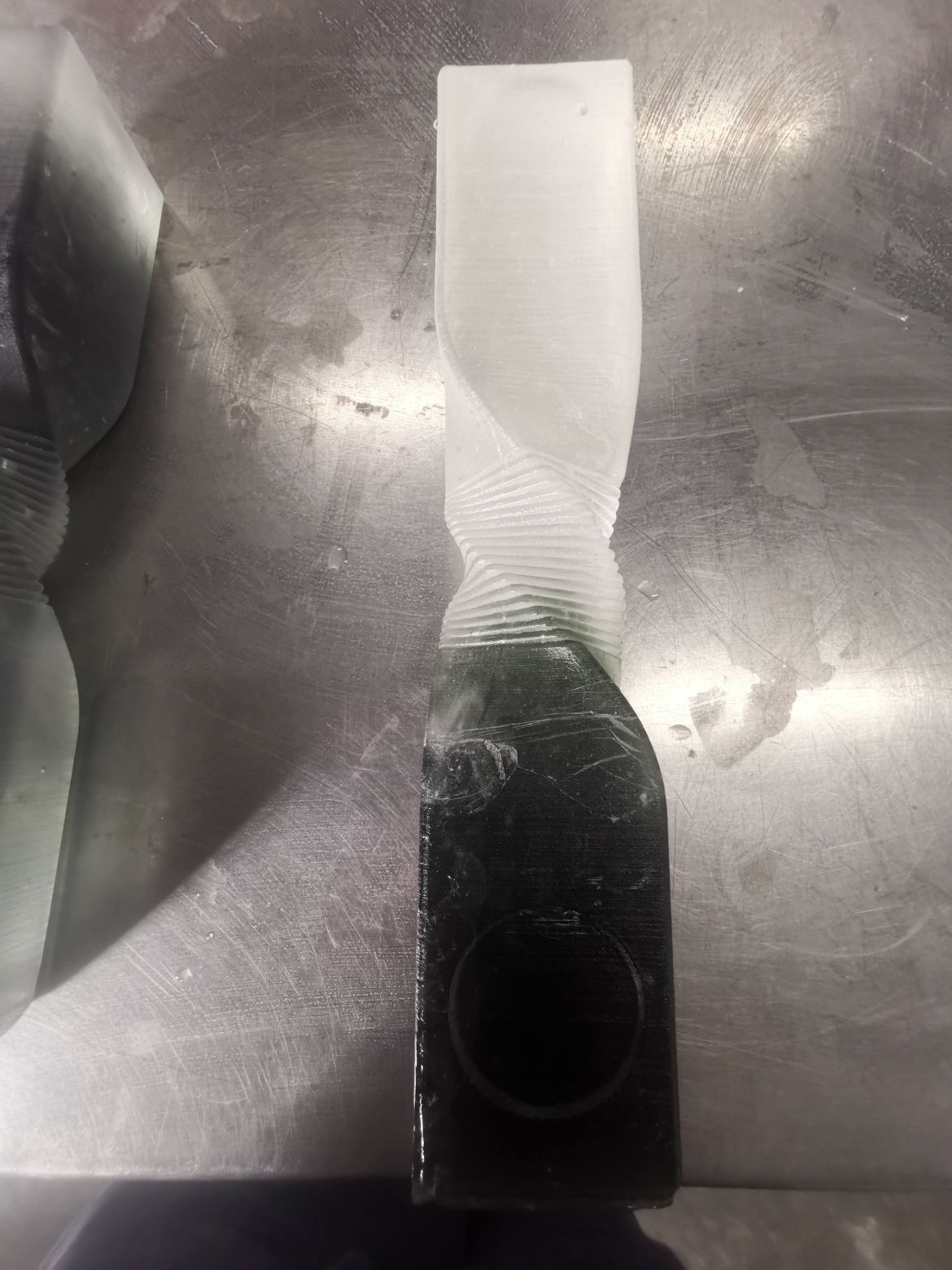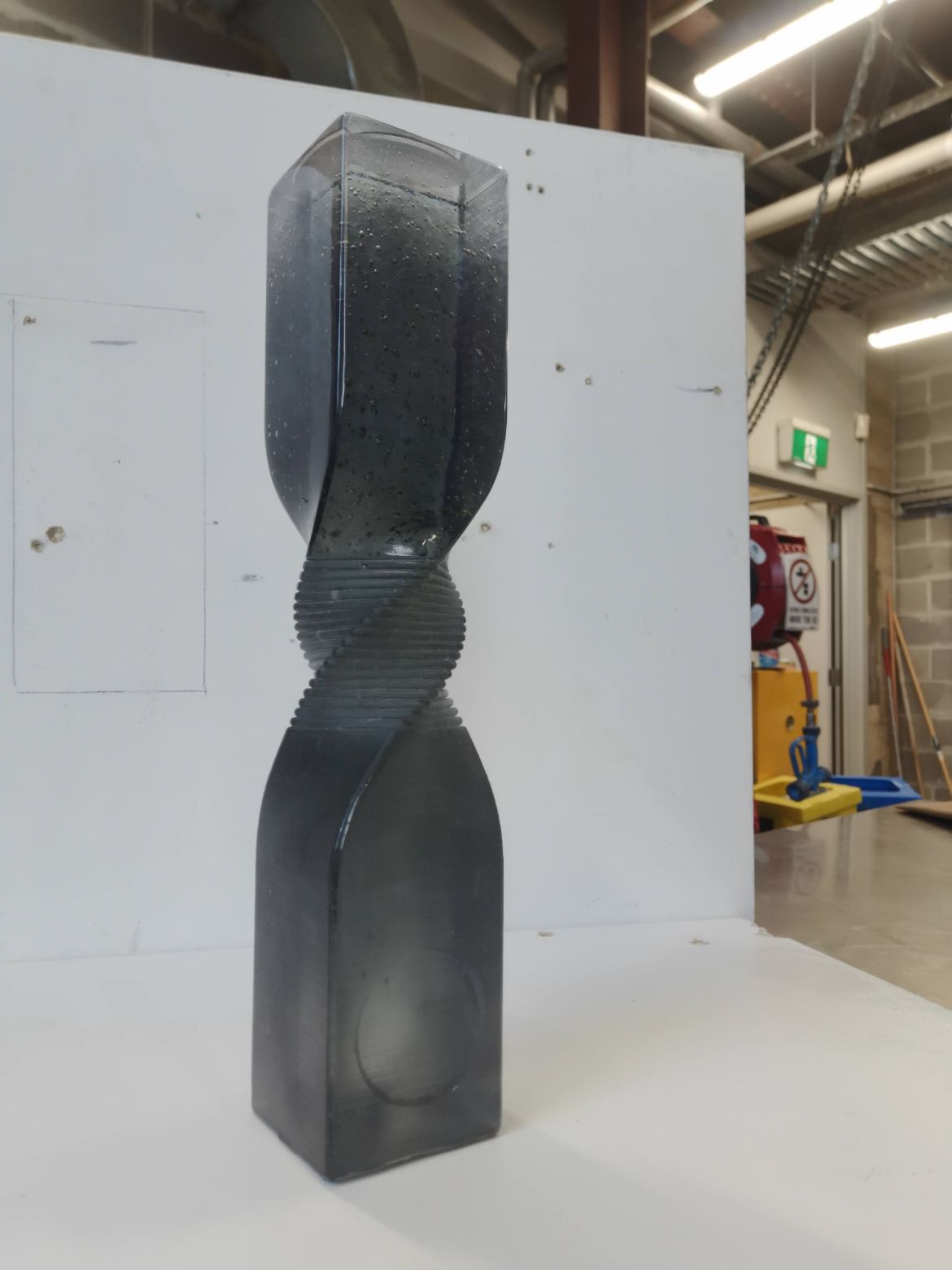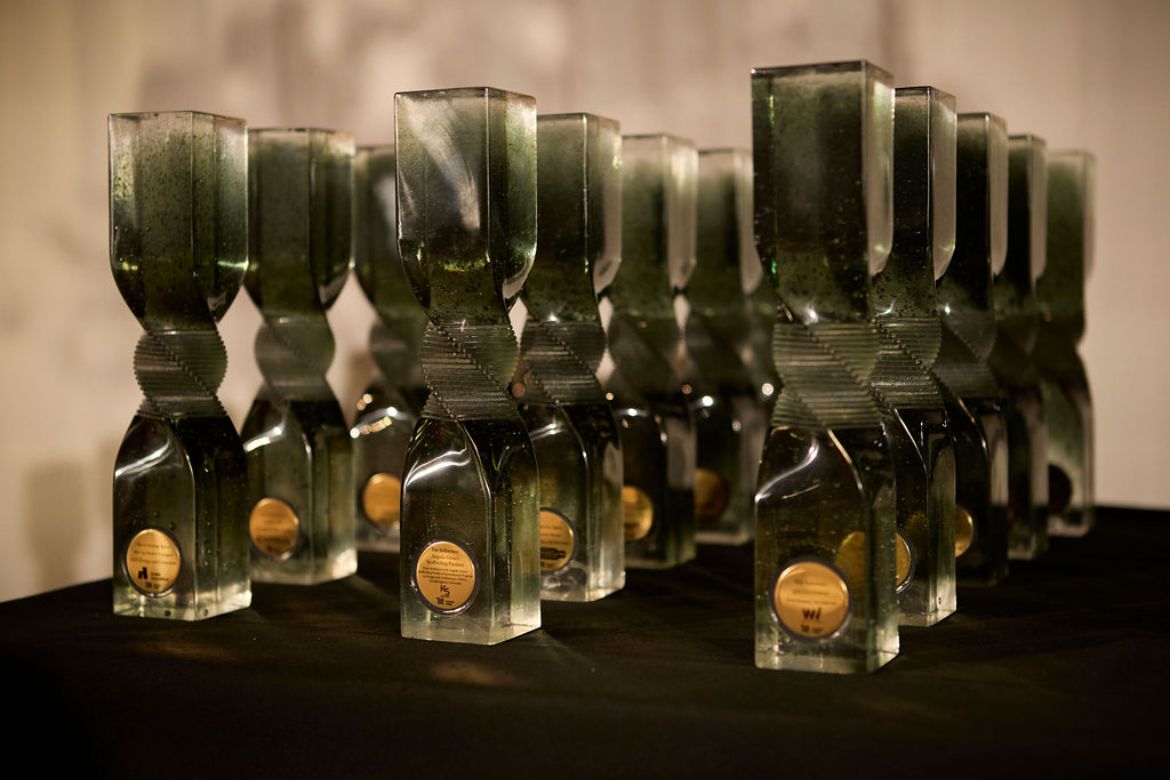
-
12 September 2023
This year, winners at the INDE.Awards saw a change of style and finesse in the physical form of the trophy they received. Created by our Trophy Partner, TILT Industrial Design (TILT), this new iconic statue is both elegant and inspirational in its structure and marks 2023 as a stand-out year for the INDE.Awards.
TILT is an extraordinary business that creates what others simply dream to make a reality. As industrial designers, they work together with architects, artists and landscape architects, inventing and developing unique solutions that transform the built environment. TILT creates ideas and concepts beyond the constraints of traditional construction methodologies and delivers truly innovative and design-led outcomes for its clients. Creating a new INDE.Awards trophy was yet another out-of-the-box commission which resulted in a truly impressive result.
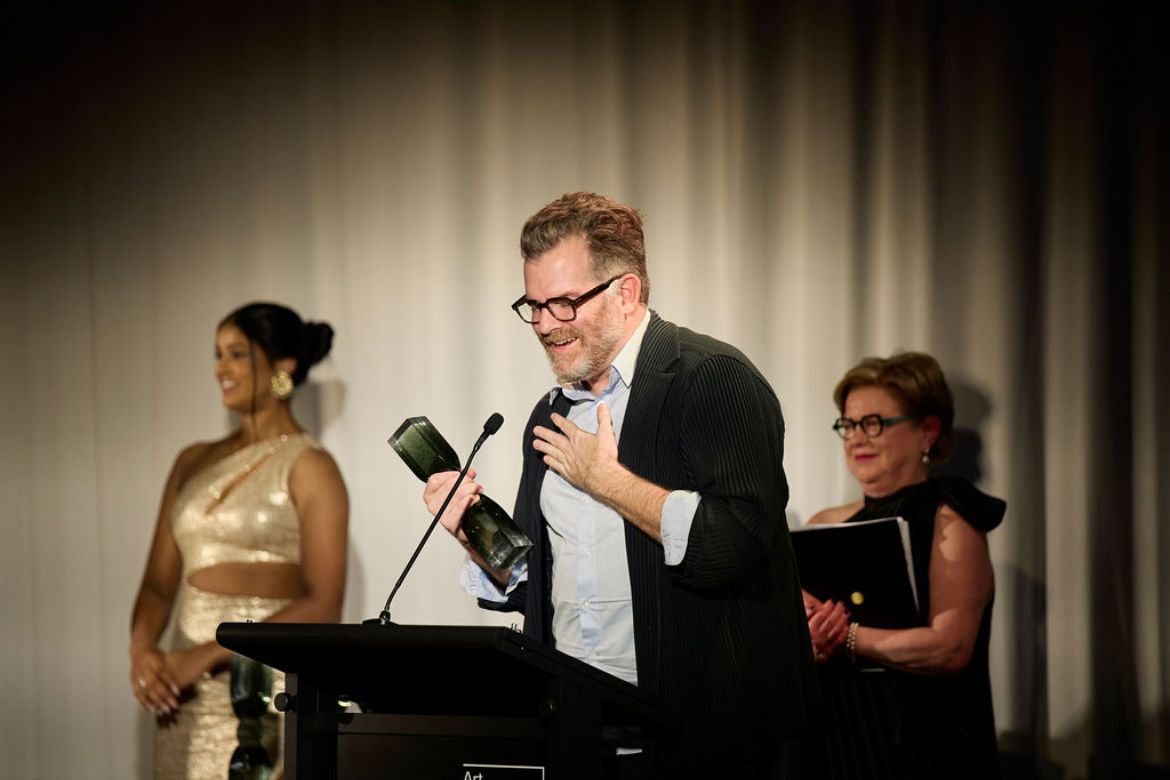
TILT conceived and manufactured a beautiful recycled glass sculpture that, through its outstanding design, embodies the ideal of the Awards. The trophy is a physical reminder that winning at the INDE.Awards is the pinnacle in recognition of exceptional design in our region.
The process leading up to the realisation of the new trophies was intensive. To find the best design, TILT ran an internal competition among staff, favourite designs were voted upon and then refined. The winning design was created by Alexander Wong, Design Manager, and then the work began in earnest for the team to translate his idea into a reality.
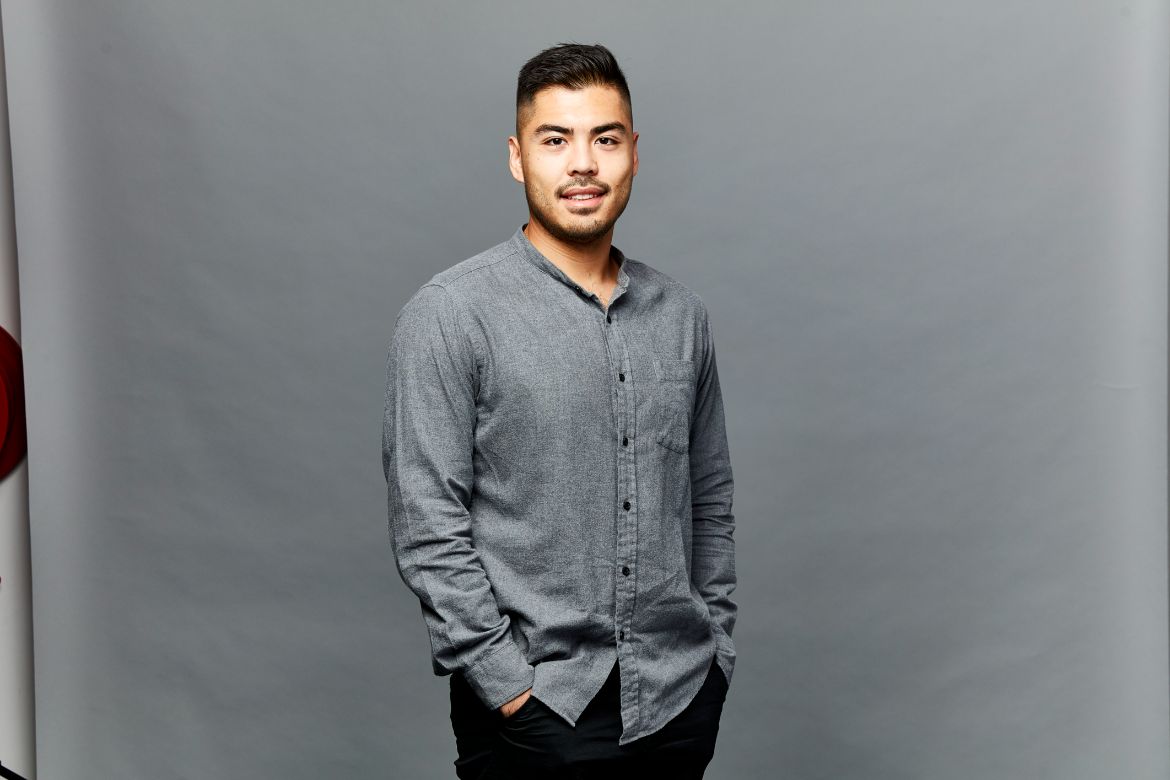
(Alexander Wong. Photography by Steven Brown)
Wong explains, “The trophy design is quite different to the scale of projects I usually work on. However, I approached it in a similar method, the way that we would normally work at TILT. So, first find a supplier, work with materials, find out about the process and what drives it, what are the factors that yield the best result in that medium, but all done on a much smaller scale.”
The concept was initially conceived while Wong was on a break with friends in the Blue Mountains. Discussing recurring motifs in his work at TILT, he began to explore the idea of collaboration. From this came the interdependent relationship of architecture and design and how the two disciplines intersect and influence each other. The blending processes and materials become a metaphor for this collaboration – they are interchangeable and cannot exist without each other.
(The trophy making process. Images courtesy of Spike Deane, Canberra Glassworks)
Wong’s sketch was adapted to a 3D printed model in order to create ceramic moulds for the glass. “We wanted the colour tonality of the glass to fade so we used a pot melt technique to achieve a gradient. The trophies were poured and cured in the oven for six days. Once extracted from their moulds, each trophy was hand polished, while preserving some markings to reveal how the trophy was created. Each trophy has two digitally printed gold discs, inlaid to create a legible and corrosion-proof plaque.” Wong explains.
For the team at TILT the biggest challenge was adapting the concept to what was practically possible. Originally the trophy’s form was to ripple from top to bottom, however limitations in the casting process led to a revised design that included ripples in the centre only. The central position was selected to have exactly 17 ripples, representing each of the INDE.Award categories. The team worked across the different processes, digital modelling, 3D printing, prototyping and hand finishing, to give the depth and precision required and to fully utilise the fabric of the hand-cast glass.
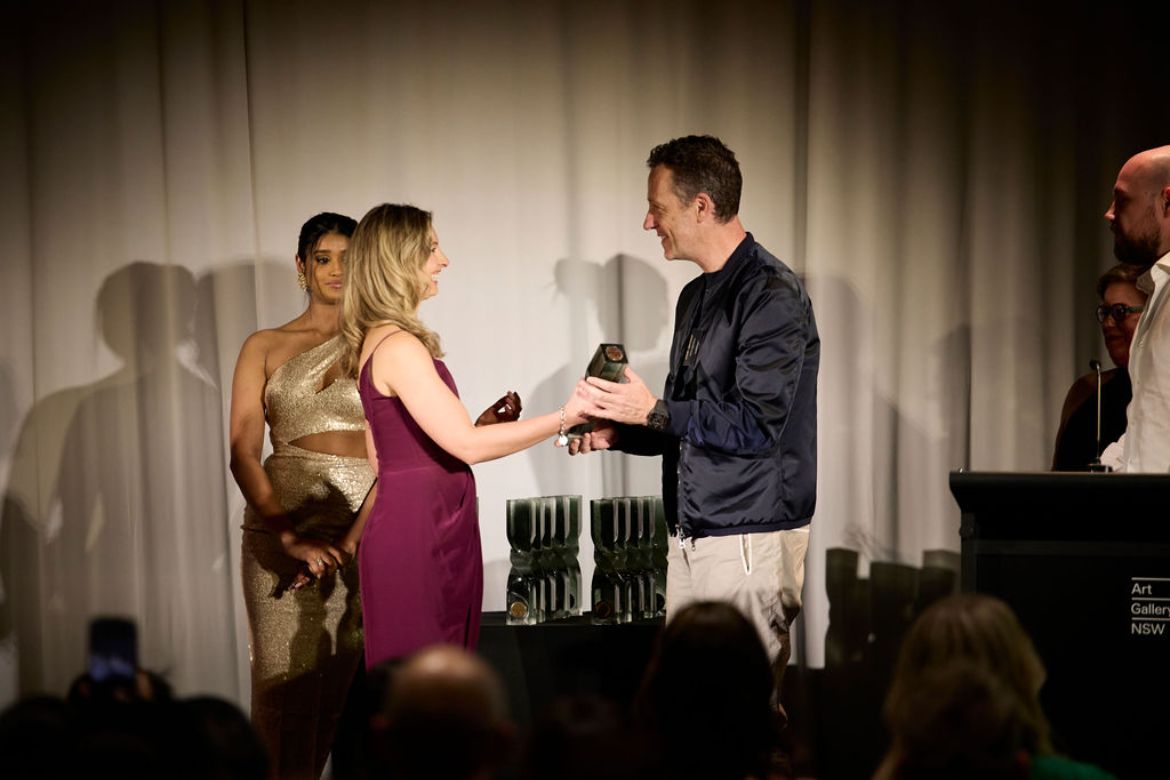
Wong wanted to accentuate the hand-craftsmanship in glass making and blend the traditional method of making with modern digital processes. With the creative direction and expertise of Spike Deane from Canberra Glassworks, prototypes with colour manipulation were created and different sanding techniques were employed to shape the surface finish.
“Ultimately, we wanted the trophy to be substantial but have a sleek look and be silky to touch. Each trophy was crafted with its own 3D mould, and while digitally made, the glass pour ensured that every trophy was individual and unique.” Wong continues, “I also wanted to keep the notion of multiple hands that touch the design, much like architectural projects, where many people work together to present a well resolved finished project.”
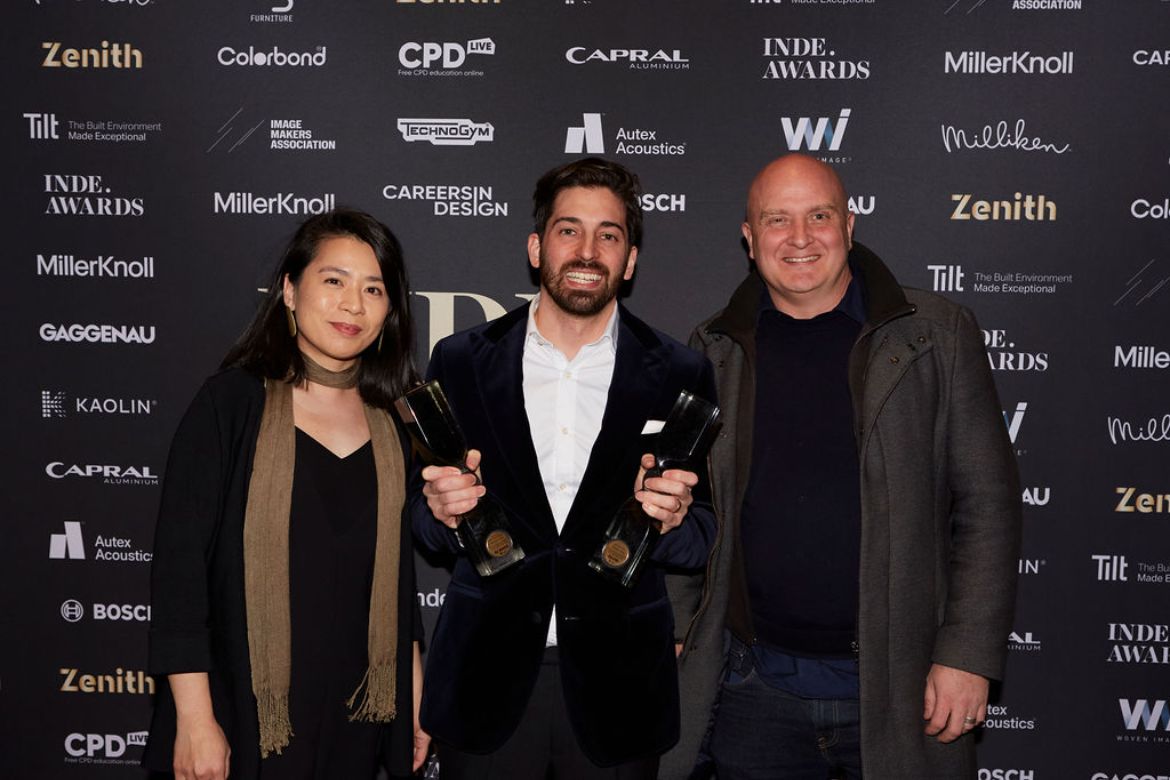
As the INDE.Awards is the Indo-Pacific’s leading voice for the incredible talent and innovation that resides in our region, these new trophies epitomise great design and represent the extraordinary accolade of winning a place in INDE history.
For Wong, the moment of realisation that his trophy was a success came from the winners of The Multi-Residential Building Category, who were subsequently crowned the Best of the Best winner. Wong recalls, “When I was walking by the table with all the trophies, it didn’t really register, but the moment of triumph was the practices’ that won the Best of the Best. When the trophy was first awarded for The Multi-Residential Building category and the recipient was starting his speech, he did a trophy pump and sort of raised the trophy over his head triumphantly. And that, for me, was the moment. Seeing the joy on his face, on his team’s face was, ‘yes this is great, it’s worked out really well’.”
And the final words come from Tim Phillips, Managing Director, Tilt Industrial Design who says, “The INDE.Awards are a significant celebration of design and architecture, and TILT was honoured to partner with Indesign to create the trophy for this year’s event.” He continues, “As an industrial design consultancy, we pride ourselves on developing innovative and unique design outcomes, and this project provided our team with the perfect opportunity to reflect on the principles we follow every day in design to create our own product outcome.”
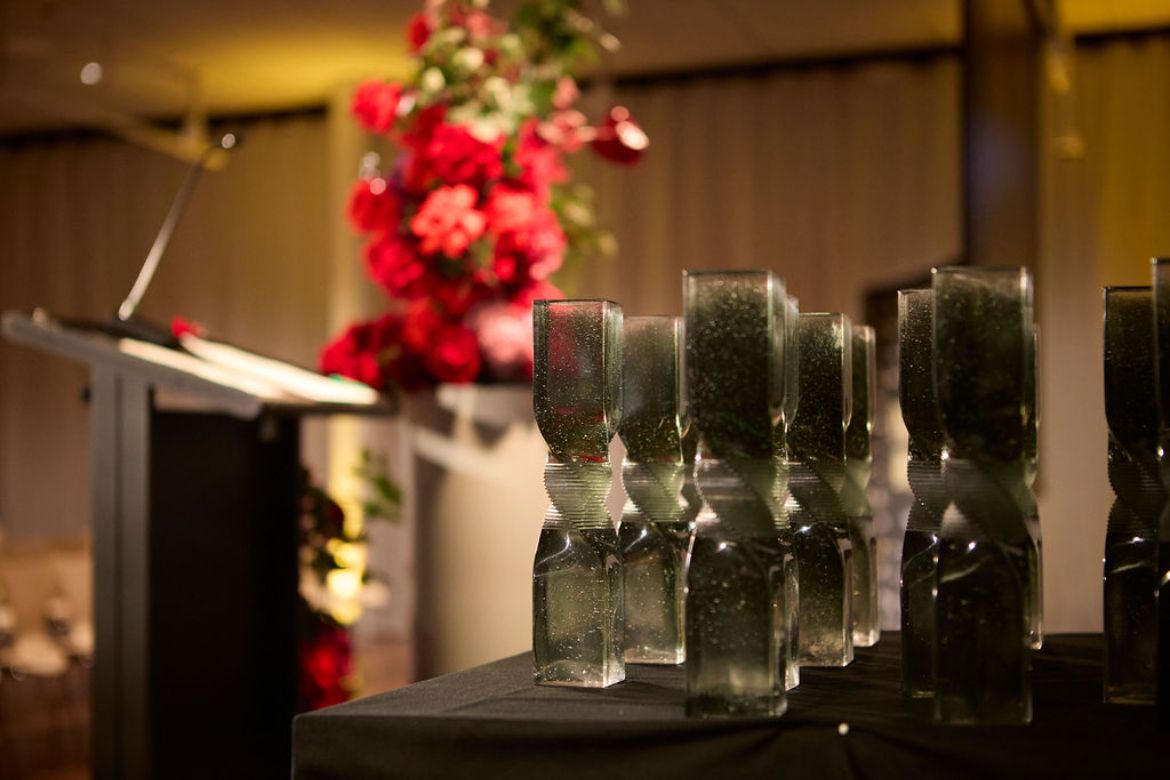
TILT has created a sculptural object that is timeless and enduring, a design icon, and we thank them for conceiving a trophy that is altogether fitting for the winners of the 2023 INDE.Awards.
Winners of The Multi-Residential category and Best of the Best were, Architecture architecture, Austin Maynard Architects, Breathe, Clare Cousins Architects, Hayball and Kennedy Nolan.
